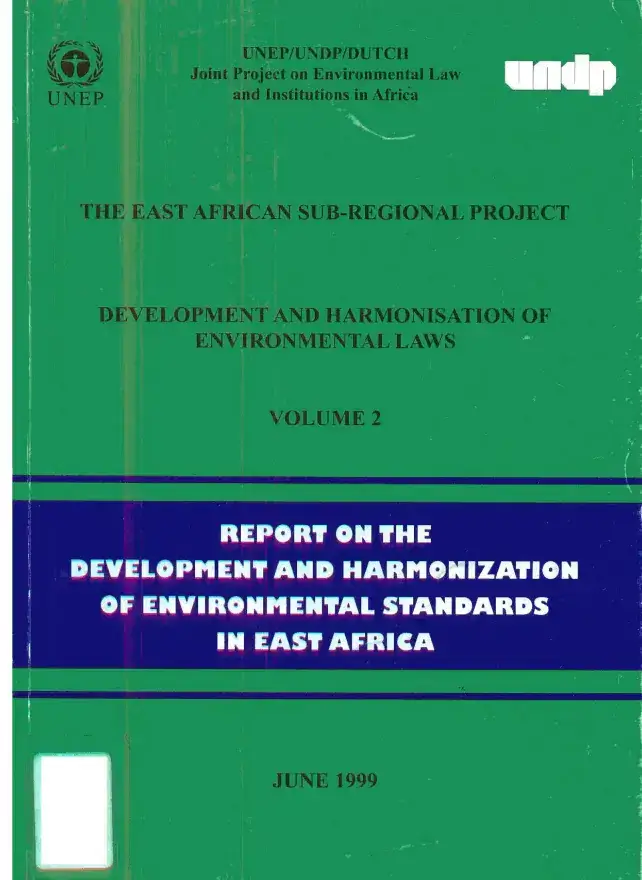Environmental law is an essential tool for the governance and management of the environment and natural resources. It
is the foundation of national and regional policies and actions to ensure that the use of natural resources is done equitably
and sustainably.
In the East African sub-regional countries of Kenya, Tanzania and Uganda have, since 1995, been developing and
harmonizing various environmental laws in selected sectors within their region. The process of developing and harmonizing
environmental laws is intended to lead to the enactment or amendment of the internal legislative, regulatory and
administrative framework of each country. Such change has been harmonized at a sub-regional level where the three
countries have agreed on legal principles, definitions and substantive legal provisions to govern a segment or matter of
the environment or natural resource sector.
The volumes produced by the UNEP/UNDP Joint Project on Environmental Law and Institutions in Africa, East African
Sub-regional Project, are intended to build capacity in Kenya, Tanzania and Uganda in environmental law. The East
African Sub-Regional Project is a component of the UNEP/UNDP Joint Project on Environmental Law and Institutions in
Africa funded by the Dutch Government. The underlying presupposition is that the three countries share similar historical
and legal heritage and that the physical and historical situation in East Africa offered an opportunity to initiate and
encourage dealing with environmental issues according to problem-sheds. The historical facts are that (a) there is a
history of regional cooperation among the countries from colonial times; and (h) there is shared legal tradition which
derives from common law origins. These two historical facts were relied upon to support development and harmonization
of legislation on selected themes in the commonly shared environment.

★★★★★
1.5k views989 likes👍 Like
★★★★★★
